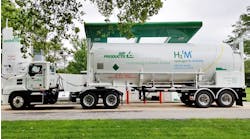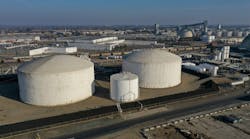The US Environmental Protection Agency’s latest renewable fuels proposal will provide stability for the nation’s biodiesel industry while helping to create jobs, improve the environment, and bolster US energy security, National Biodiesel Board Chief Executive Officer Joe Jobe testified recently.
Speaking at an EPA hearing, Jobe said the agency’s proposal represents a modest and sustainable level of growth in the Biomass-based Diesel program that is consistent with availability of the diverse feedstocks used to make biodiesel, such as vegetable oils, recycled cooking oil, and animal fats. He noted that biodiesel is the only EPA-designated Advanced Biofuel being produced on a commercial scale across the country, and he commended the EPA for supporting the industry’s growth.
“While we believe these are conservative targets for the US biodiesel industry, we applaud the EPA for proposing a reasonable increase,” Jobe said in a statement after the hearing. “As America’s only EPA-designated Advanced Biofuel to reach commercial-scale production nationwide, we are ready to meet the challenge.”
So far in 2011, biodiesel is demonstrating its ability to achieve the EPA’s 2011 standard of 800 million gallons. Biomass-based Diesel production has averaged some 75 million gallons in recent months, with a high of 82 million gallons in May, putting it well on track for meeting or exceeding the target.
The EPA’s latest proposal calls for increasing the Biomass-based Diesel volume to 1 billion gallons in 2012 and almost 1.3 billion gallons in 2013. (Biodiesel makes up nearly all US Biomass-based Diesel production.) Because it qualifies as an Advanced Biofuel, biodiesel is also eligible to exceed the Biomass-based Diesel targets and help meet general advanced biofuels requirements under the program.








